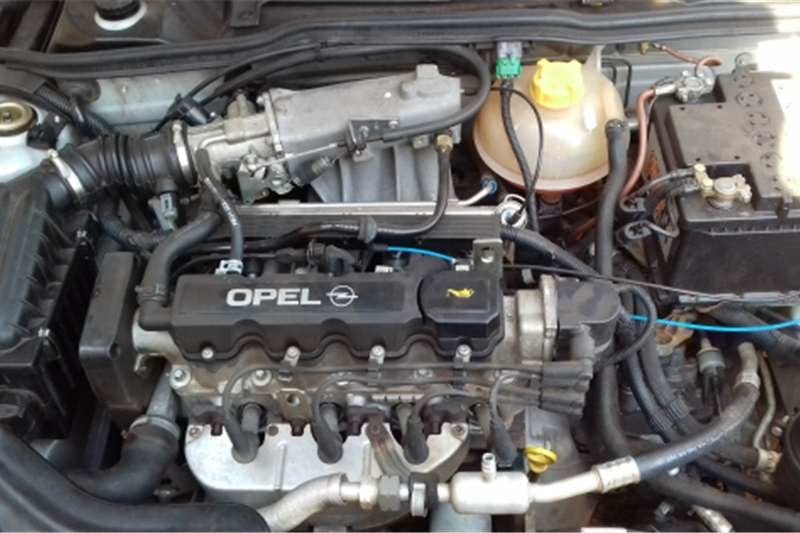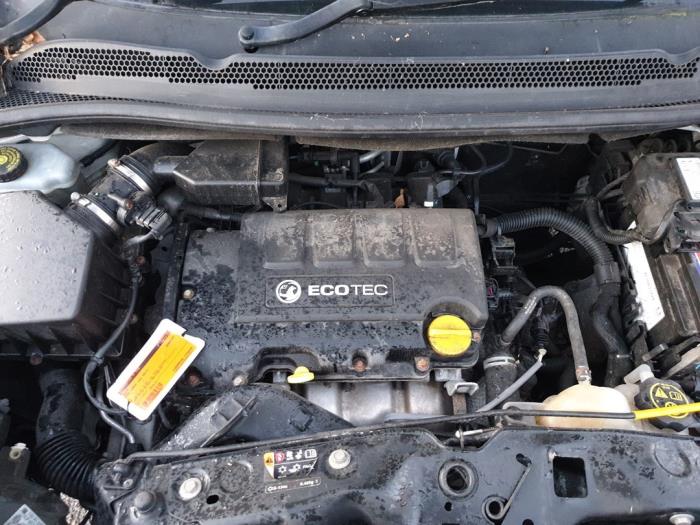Smart Customer's Checklist: Key Features to Review in Engines Before Making an Acquisition
When taking into consideration purchasing an engine, there are a number of crucial features that a discerning purchaser need to evaluate to ensure they are making a knowledgeable choice - Opel Corsa 1.4 Engine Price. From the sort of engine to its efficiency metrics, gas maintenance, sturdiness, and effectiveness costs, each facet plays an important role in identifying the engine's suitability for the designated function. By thoroughly analyzing these elements, buyers can purchase that not only fulfills their present requirements however also confirms to be a sensible lasting financial investment
Engine Type Assessment

For applications calling for high power output, such as heavy-duty commercial equipment or big automobiles, diesel engines are usually preferred as a result of their performance and torque abilities. On the other hand, gasoline engines are typically chosen for smaller equipment, lorries, and power tools where lighter weight and higher RPM efficiency are advantageous.
Furthermore, the environment in which the engine will certainly operate need to be taken into consideration. Variables such as temperature level, air, and altitude quality can impact the engine's performance and longevity. Picking an engine type that is suitable for the particular operating conditions will certainly help make sure optimum efficiency and sturdiness.
Performance Metrics Analysis
Reviewing efficiency metrics is critical in establishing the efficiency and effectiveness of an engine for its designated application. One key statistics to take into consideration is the power outcome, typically gauged in horse power (HP) or kilowatts (kW), which indicates the engine's capability to do work. Torque is another necessary metric as it stands for the rotational force produced by the engine, influencing its ability to overcome resistance and speed up. Fuel efficiency is a critical performance statistics, highlighting how successfully the engine converts fuel right into functional energy. Additionally, examining emissions degrees, such as co2 (CO2) and nitrogen oxides (NOx), is important for making sure ecological conformity and decreasing the engine's environmental effect. Thermal effectiveness, a measure of how well the engine transforms warmth from fuel combustion right into mechanical job, is also basic in evaluating overall performance. By meticulously reviewing these efficiency metrics, customers can make enlightened decisions when picking an engine that straightens with their certain demands and objectives.
Fuel Effectiveness Evaluation
Analyzing fuel effectiveness is a pivotal consider determining the functional cost-effectiveness and ecological impact of an engine. Fuel effectiveness describes the quantity of energy an engine can draw out from a particular amount of gas. It directly affects the total operating budget of the engine, making it a critical factor to consider for buyers seeking to maximize their long-lasting costs.
When examining fuel effectiveness, it is important to think about find out here metrics such as miles per gallon (MPG) or litres per 100 kilometers (L/100km) depending on the region. These metrics offer a clear indicator of just how much a vehicle can take a trip on an unit of fuel, permitting buyers to estimate gas costs accurately. Additionally, modern technologies like crossbreed systems, turbocharging, and straight gas shot can substantially impact gas effectiveness by enhancing combustion performance and reducing power losses.
Eventually, choosing an engine with high fuel effectiveness not only lowers operational costs yet also lowers carbon exhausts, making it an environmentally conscious choice. By focusing on gas efficiency throughout the investing in procedure, buyers can make informed decisions that align with their ecological and financial goals.
Toughness and Dependability Check

Considering the considerable effect of gas performance on functional costs and environmental sustainability, the next important aspect to assess in engine acquisition is the durability and reliability of the engine. Durability refers to the engine's capacity to hold up against wear, deterioration, and tension over an extensive duration, ensuring a longer life expectancy. Reliability, on the other hand, refers to the engine's consistency in performance under different conditions without unanticipated failures or failures.
To more information examine the sturdiness and integrity of an engine, numerous aspects need factor to consider. Examining the engine's construction products and design can give understanding into its robustness and resistance to put on. Additionally, assessing historic information on the engine model's efficiency, upkeep needs, and common concerns reported by customers can help evaluate its integrity.
In addition, accreditations from credible organizations, service warranty offerings, and maker credibility for producing reputable engines are beneficial indicators of sturdiness and integrity. Performing thorough research study, looking for recommendations, and inspecting upkeep documents can help in making a notified decision on purchasing an engine understood for its longevity and dependable efficiency.
Price and Maintenance Considerations
When contemplating engine acquisition choices, an important aspect to explore is the financial implications paired with upkeep considerations. The cost of an engine expands beyond the initial acquisition cost. It is important to evaluate factors such as gas effectiveness, ongoing upkeep expenses, and the availability of extra components. Opting for a fuel-efficient engine might result in lasting expense financial savings regardless of a potentially higher in advance price. In addition, assessing the upkeep needs of various engine models is crucial. Some engines may require frequent maintenance or specialized care, bring about enhanced upkeep expenses with time. Considering the schedule and cost of extra parts is additionally critical. Engines with easily available and moderately valued extra parts can substantially lower maintenance expenses and downtime. Focusing on cost-effectiveness and ease of upkeep can lead to a more lasting and economical engine financial investment in the long run.
Conclusion
To conclude, it is important for purchasers to extensively examine crucial functions in engines before purchasing. By thinking about the engine type, performance metrics, gas performance, durability, maintenance, integrity, and price demands, buyers can make an informed choice that satisfies their expectations and demands. This detailed examination process ensures that customers select an engine that will certainly supply optimal performance and longevity for their planned use.
From the kind of engine to its efficiency metrics, gas effectiveness, maintenance, and longevity costs, each facet plays a crucial role in figuring out the engine's suitability for the designated purpose. Fuel efficiency is a crucial efficiency statistics, highlighting exactly how properly the engine converts gas right into functional power. Fuel performance refers to the amount of energy an engine can remove from a certain amount of gas.Thinking about the substantial impact of fuel performance on Discover More Here operational costs and ecological sustainability, the following important facet to evaluate in engine purchase is the toughness and reliability of the engine. By thinking about the engine kind, performance metrics, fuel effectiveness, longevity, reliability, expense, and upkeep requirements, buyers can make an educated decision that satisfies their demands and assumptions.